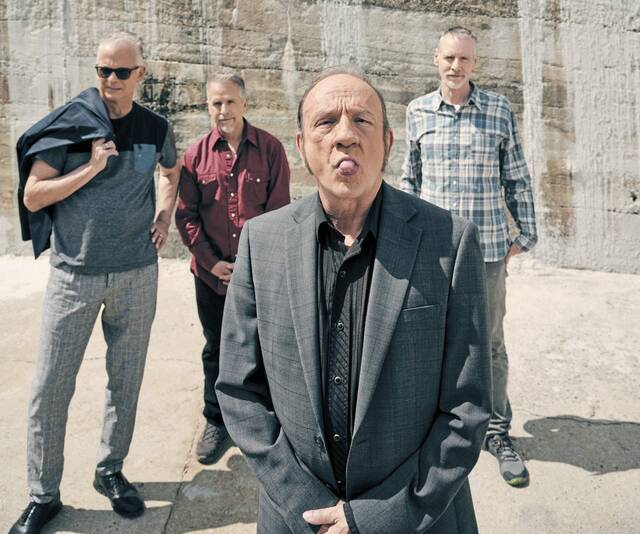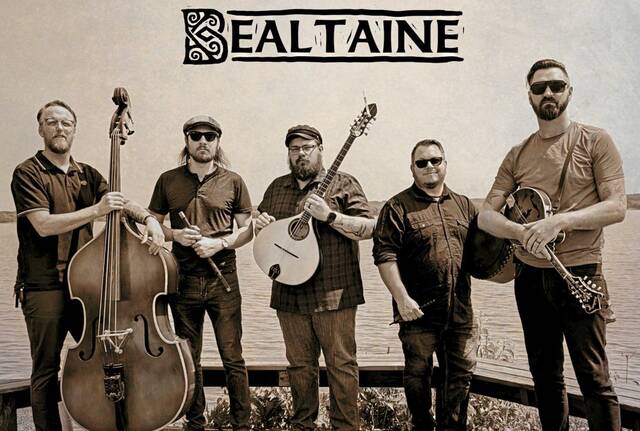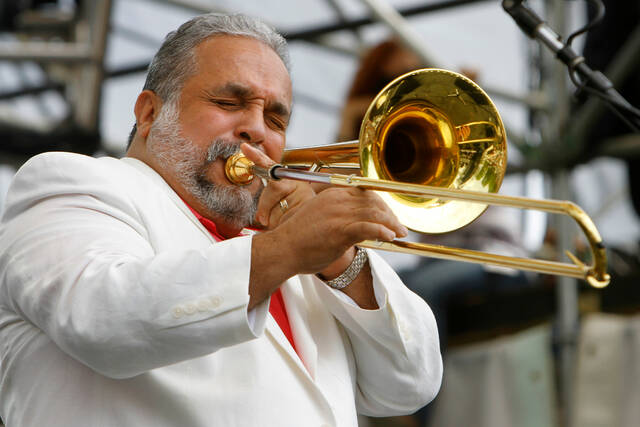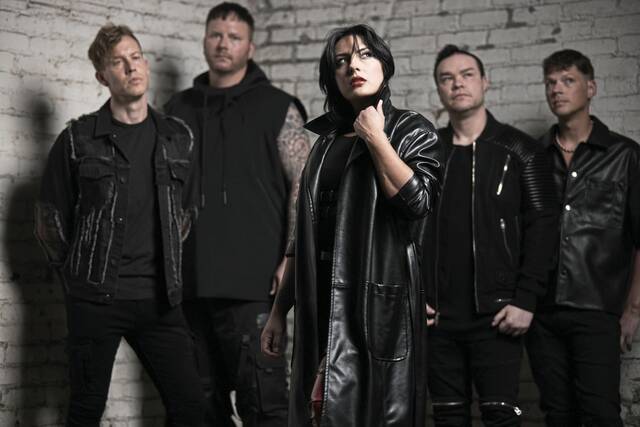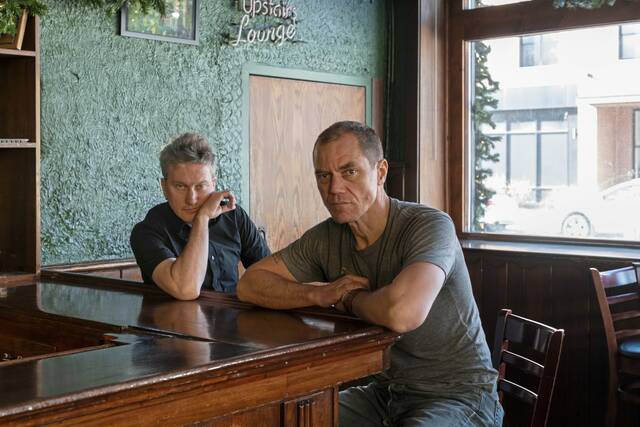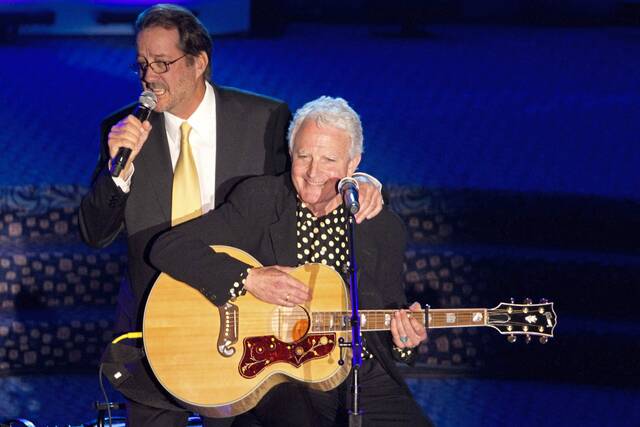For a band originally formed back in 1987, The Jesus Lizard have remained hard to define, often finding themselves labeled as noise rock.
“We don’t clearly fit in any camp, really. We’ve often had songs or parts of songs that had unusual time signatures,” said guitarist Duane Denison. “So people call it math rock or whatever, but that’s not the majority of what we do. And then some of it is very much from punk rock, but some of it there’s also little bits of art rock in there as well. So I like to think we’re just a rock band.”
The Jesus Lizard broke up in 1999 but got back together on and off since 2009 for sporadic shows. But they’re back in full force with “Rack,” their first new album since 1998, and they’re launching a tour in support of it Thursday in Louisville, Kentucky. The tour stops in Pittsburgh on Monday with a show at Stage AE, opened by Spotlights, a national metal trio based out of Pittsburgh.
The Jesus Lizard shows aren’t as tumultuous as in the past, when singer David Yow was known to get naked, dive into the crowd or light himself on fire.
“We were younger, everyone was younger at those shows. And that whole world, the sort of rowdy concert, stage diving, whatever kind of world, that was still new, and they were still working the bugs out of it,” Denison said. “And along the way, there were injuries and things, and so I see a lot of venues had to tighten things down, and it’s understandable, and a lot of bands had to change what they do, injuries to themselves as well.
“So it’s not quite as chaotic, but there’s still an element of danger to it, which to me is what makes rock ‘n’ roll rock ‘n’ roll.”
With 26 years between albums, Denison joked that The Jesus Lizard’s next one will be ready by 2050.
“By then, they’ll be keeping our brains alive, but our body, we’ll be dead by then, but our brains will be kept alive,” he said. “And maybe our kids will put a band together and we’ve actually set some sketches aside for them to kind of keep the empire rolling…”
In a call from his Nashville home, Denison went deeper into the making of “Rack” and more:
How important was it to make new music together as The Jesus Lizard?
For me, it was very important. I’ve done a lot of other things since the band initially broke up in ‘99. We all moved to different cities, but I moved from Chicago and kept doing music with different people and writing and recording and whatnot. But it’s just not the same. The Jesus Lizard, I like to think we have our own sound and our own vibe. And when the four of us get together, it just turns into a different thing. So being able to recapture that and even in a, might I say, sort of an updated way, was just something that I was really looking forward to. As much as I loved playing shows with the guys, I really wanted to have some new songs to play. And that’s what that was about.
How did the process go for writing the new album?
It was maybe a little different than in the past in that we don’t all live (together). When we started that band, not only were we all in the same town in Chicago, we were in the same building. The four of us all lived together in a three-bedroom. It was like the four of us in a three-bedroom apartment. And we were on top of each other 24 hours a day for probably several years. I don’t miss that. But so you accumulate your own ideas and make sketches. In the old days, you would record typically on a cassette and, say, put a few things down, maybe with the metronome. Or if you got more advanced, you’d have like a four-track or something, and then share the cassettes. And then people would listen to it, maybe customize their parts, come up with secondary parts or whatever. Now, even though we’re in different cities, I don’t think it’s that different. You just send files, right? You just turn it into a file and send them to each other and listen to them. And then we would all get together and kind of work out the details together. So it took a little more time and it wasn’t quite as organic, but to me, it wasn’t that different either.
When you look at “Rack,” do you see evolution in the band from 20-some years ago?
Oh, yes and no. I think that we still kind of do what we do, very riff-based, beat-based rock music. We tend to get lumped in as this noise rock thing, but I never really saw it that way. I thought that we always had clearly delineated structures to our songs and while they may not have been the most melodic things compared to say the Beatles or whatever, there was certainly recognizable patterns there, wasn’t there? Like in the riffs or in even the vocals. Even if they weren’t melodic, they tended to be consistent in the patterns that they created. So I always thought that we always had a certain amount of traditional songwriting craft in there. If anything on this newer one, there’s maybe a little more atmospherics, songs like “What If?” and “Alexis Feels Sick.” Even “Armistice Day” but then again, we’ve always had little bits of atmospherics here and there, and I’ve always thought what set us apart maybe from a lot of, say, metal groups is we tended to use space more. We tended to let there be space between the parts and everyone’s not playing all the time or playing super busy all the time or thick texture. I think there’s room. We’ve always left room for what I think is the listener’s imagination.
Related
• Mariah Carey, Kansas, Justin Timberlake highlight top December concerts in Pittsburgh• Inside 'The Underground': Iron Mountain in Butler County preserves audio, video, digital media for the future
• 2024-25 Pittsburgh area concert calendar
When it came to putting together a “reunion album,” was there anything that you wanted to avoid?
To me, we were in kind of a unique position in that we could sit back and see what other people had done. I don’t call them reunion albums or just call them like old guy bands or whatever getting back together. Whether it was Magazine or Bauhaus or the Pixies and there’s others, even the Stooges, where I think they try to out-sophisticate themselves. I think that they’re like, ‘We’re older now. We’re more sophisticated. I want you to see how clever we truly are.’ And I’m not saying we went out of our way to dumb it down because that comes naturally to us. But I don’t know, I think a lot of times, especially guitar players, they tend to look at it as a chance to show off one last time. And there’s a bit of flash guitar here and there on the album, but that’s not what it’s all about. I think it was just a chance to show just a little more, shall we say, a little more of a streamlined, chopped, channeled version of what we’ve always done.
Are all of these songs new or were some of them hanging around from the old days in the ‘90s?
A couple of them were hanging around, actually. “Lord Godiva” was something that we had definitely recorded demos of. And, let’s see, there was another one, the one that became … “Falling Down.” That had actually been a sketch too. We had done a rough demo with very sort of scratch vocals on it, but no one remembers that. It’s funny. We never played it live. I think “Godiva,” we actually played different versions of it live. So, yeah, those two go back, but everything else was pretty much new.


